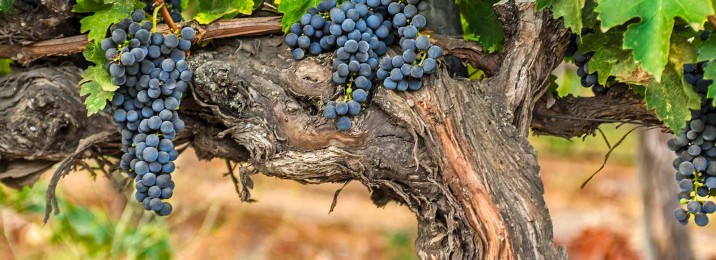Accounting For Wineries
Before buying a winery, look at it like as an accountant

Fred Bogart
Advice from Fred Bogart, Glenn Burdette
Since 1988, Fred Bogart has been a principal at Glenn Burdette, one of the central coast’s leading CPA firms. Fred specializes in the specific tax compliance and accounting requirements of the wine industry. The firm manages the accounting needs of over 40 wineries and vineyard operations.
Are there unique accounting practices for wineries/vineyards vs. other types of businesses?
Yes, it’s a specialty in regards to what you do from an accounting and tax perspective. Anyone considering a winery and/or vineyard purchase should have a conversation with a CPA or accountant that’s experienced in the industry. It’s critical to have a clear understanding of how things are depreciated, what’s deductible, what must be capitalized and what all the accounting and tax rules are because they are very specific, very different and very special.
What do I need to know, from an accounting standpoint, before investing in a winery and/or vineyard?
If you’re looking at any kind of existing winery and/or vineyard property, you’ll need to understand and have knowledge of how the purchase price is going to be allocated between the assets that you’re buying.
Then you’ll need to come up with a budget and a game plan as far as the timeline of how quickly you’re going to develop and create the winery and/or vineyard. Specifically for a vineyard, you’ll need to understand the cash flow in that a lot of expenditures occur before you’re able to actually deduct them for income tax purposes.
For example, I typically tell people that by the time you actually get any fruit off of a new vineyard, you’re probably going to spend in the neighborhood of $30-40,000 per acre depending upon the amount of work you do yourself vs. hiring outside contractors. That’s a lot of money spent and much of that isn’t tax deductible until you actually start to bear fruit, which would be in the third year.
Most people ask, “I spent all this money putting in a vineyard, don’t I get to write-off the cost of trellising the land, installing the irrigation system and planting all the root stock?” And the answer is no because the IRS makes you capitalize that under a pre-productive period, which is three years for a vineyard. A lot of people aren’t aware of that until we have that conversation.
And so you’ll need to have a good understanding of the cash flow and the capital required. If you’re going to go the step of having a winery, you’ll need to have a distribution and marketing/sales plan in place as far as what you’re going to do with your wine once you make it.
What should I look for in a winery and/or vineyard as a purchase?
Due diligence is key. If you’re looking at an existing winery you’ll want to investigate the brand strength, the marketing and distribution plans and the volume of cases produced. You’ll want to find out who your competition is, who is the winemaker and who are the key employees?
For example, I have some clients whose winery brand is very strong and all they have is a wine club. They sell out every year, making that winery very valuable vs. somebody that doesn’t have as strong a presence and they’re trying to develop their distribution channels through either their tasting room or through local restaurants or grocery stores.
In regards to a vineyard, you’ll need to be aware of important agricultural concerns, such as water. If starting from dirt, you’ll need to familiarize yourself with city and county permitting and zoning requirements.
Overall, are wineries and/or vineyards a good investment?
It depends. Someone has to put pencil to paper and come up with a budget, a projection and a business plan in order to make sense of it financially. Then they’d need to figure out what they’re going to do and in what steps chronologically to see whether or not it’s a viable business financially or if it’s just something that they’re interested in doing because they enjoy doing it.

